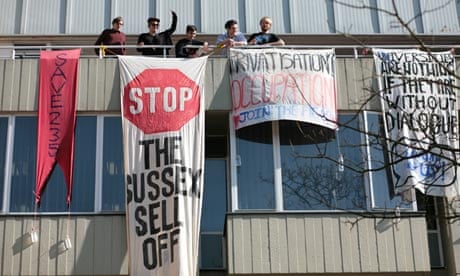As the Department for Business, Innovation and Skills announces reductions to spending in 2014-15, universities are looking for new and innovative ways to save money. For many, this has meant outsourcing campus services, including catering and facilities management.
But how do universities go about making these decisions and what do they see as value for money?
Jane Wills, professor of human geography at Queen Mary, University of London, says that while outsourcing can save money, it often squanders university morale.
"In relinquishing control, universities are ensuring that some of the most prominent workers on campus are less invested in the organisation," she says. "Not being part of the host community implies you are less important, that you are less valued. Outsourcing also puts downward pressure on wages and conditions of work, and is reflected in the wages you get."
Losing that sense of community spirit is a big concern for many in the sector. Last year, staff and students protested against privatisation which they felt would undermine their university experience.
Yet cutting costs shouldn't mean reducing standards. So is collaborative procurement between universities – where they share facilities, resources and equipment – a better model?
Although many universities have been doing this since the 1980s, they have so far struggled to meet their target to collaborate on 30% of their non-pay spend.
The big question is this: how do you convince people to work together at a time when universities are competing in an increasingly tough market – and then make this the norm? Florence Gregg, a higher education procurement consultant, says it's all about understanding when it's appropriate to collaborate.
In our online discussion, we'll be discussing how institutions can be efficient in their spending without reducing the quality of university life. We will look at the role of social enterprise in helping canny universities think creatively to deliver services and manage operations in ways that can increase productivity, reduce costs, and improve quality.
We want to discuss:
Outsourcing versus insourcing
Shared services
Enabling social enterprise
Success stories
The debate this Friday (7 February) – in partnership with Efficiency Exchange – is open to all and will take place in the comments section below this article from 12-2pm GMT. Create a Guardian comment account to join in.
Contact claire.shaw@theguardian.com to be on the panel.
Panel
Ian Powling, project manager at Universities UK, working on the Efficiency Exchange project. @EfficiencyEx
Chris Halward, professional development director at the National Outsourcing Association.
Mustafa Ozbilgin, professor of human resource management at Brunel Business School.
Anne Hannaford, director of information and learning services at the University of Worcester and university lead for The Hive.
Suzie Campbell, director and co-founder of MetaValue, which helps organisations be more efficient, effective and grow. @metavalue
Katy Boom, director of environmental sustainability at the University of Worcester.
Paul Tomany, managing director of North Western Universities Purchasing Consortium (NWUPC).
Vincent King, partner and specialist higher education contracts lawyer at law firm Weightmans LLP.
This content is brought to you by Guardian Professional. Looking for your next university role? Browse Guardian jobs for hundreds of the latest academic, administrative and research posts

Comments (…)
Sign in or create your Guardian account to join the discussion